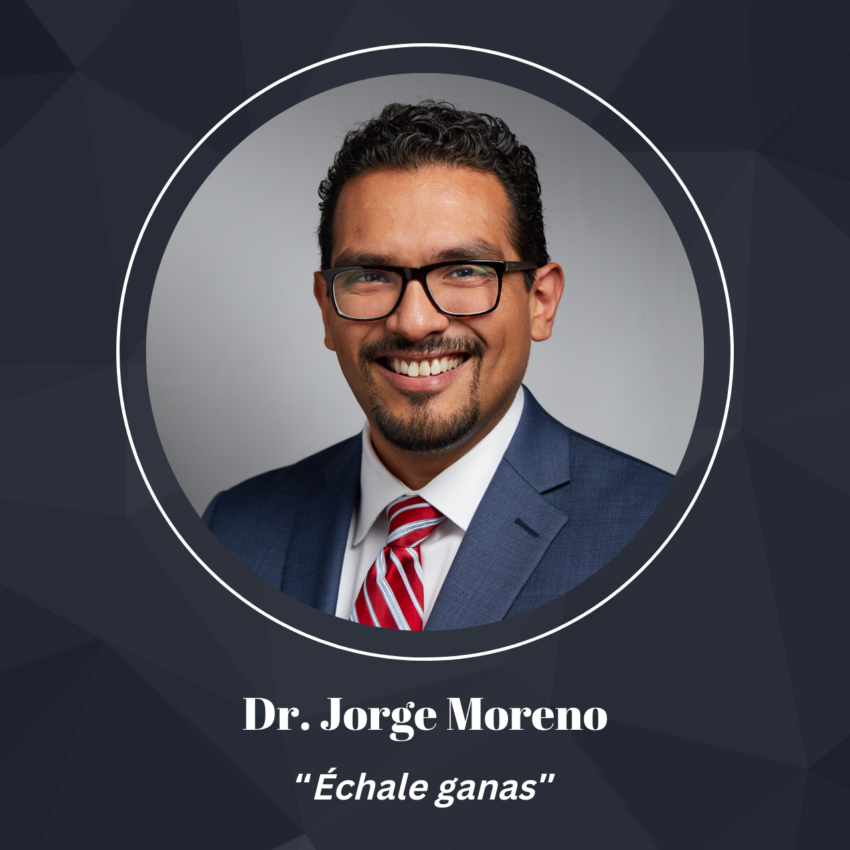
Share On Social!
Late nights studying had become the norm for young Jorge Moreno.
While he poured over his college textbooks, Jorge recalled the dream he’d had since he was very young – becoming a doctor – and he pushed himself to strive forward.
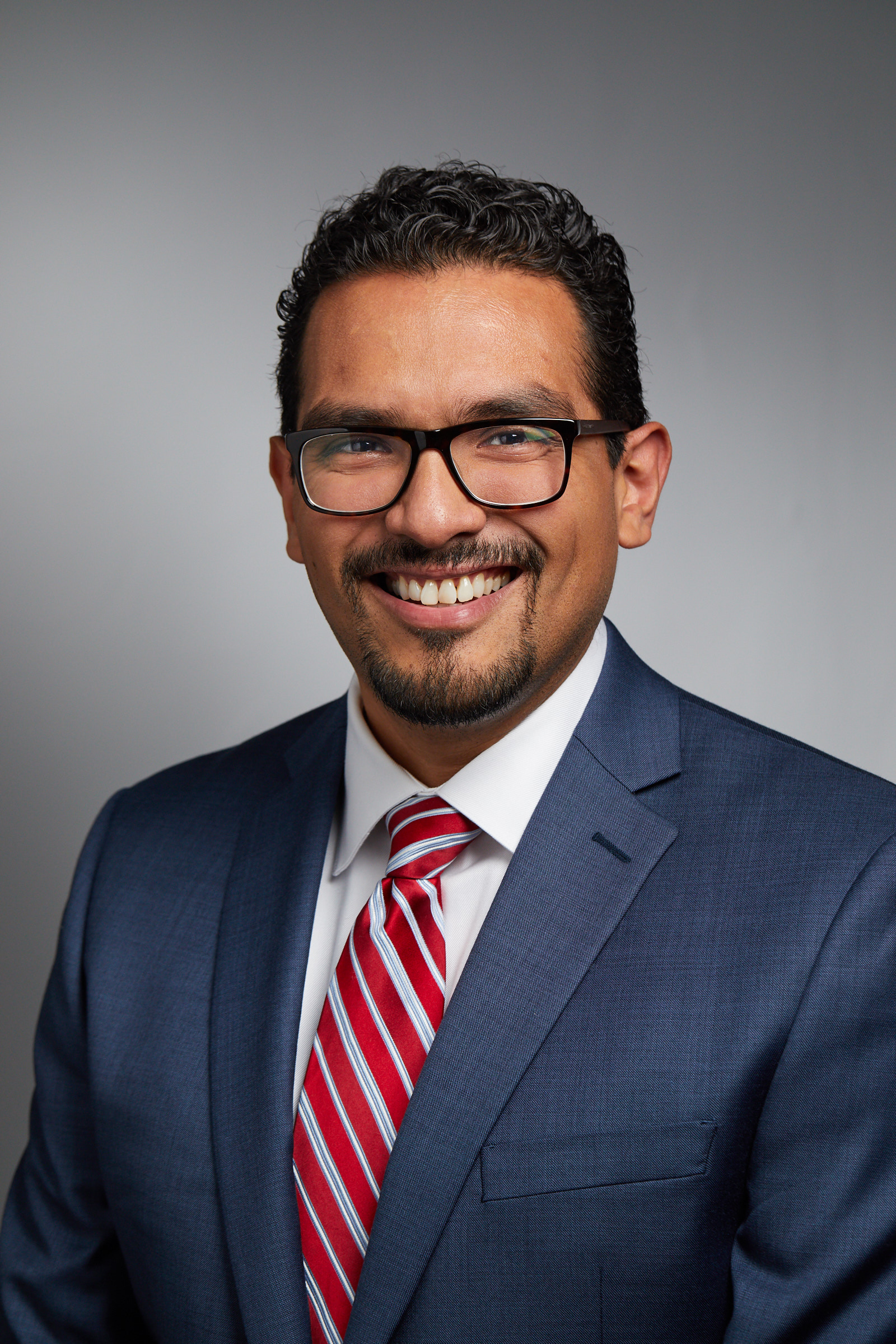
“Échale ganas,” Jorge’s father would say in encouragement (“give it your all,” in English).
With the support of his family and mentors, Jorge would go on to achieve his dreams and more.
He would become a board-certified internal medicine and obesity medicine physician, and an assistant professor of medicine at Yale School of Medicine.
In this position, he would also become a liaison for the Latino community during the COVID-19 pandemic and play a critical role in infection control in both the community and clinical setting.
But before Jorge became a leader in medicine and the Latino community, he was just a young boy adjusting to a new life in New Rochelle, New York, which is currently 29.9% Latino.
Humble Beginnings
Originally from Mexico, the Moreno family moved to the US when Jorge was around age 6. At that point, he spoke only Spanish.
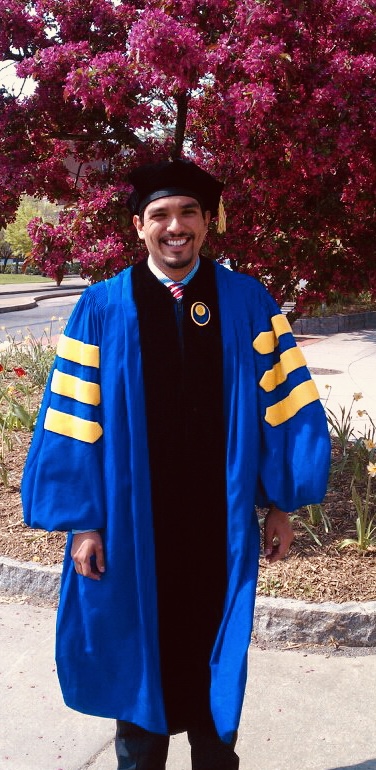
He learned English over the next couple of years in school while continuing to speak Spanish at home in his traditional Mexican household.
Because his parents didn’t speak English, Jorge often served as a translator when the family went to see the doctor. These experiences inspired Jorge to become a doctor who could provide culturally competent care.
“I could see how I might have misinterpreted what the doctor was saying,” Jorge said. “It made me realize we need more Spanish-speaking physicians, nurses, and healthcare providers of all types.”
Knowing the lack of diversity in medicine, Jorge set his sights on a medical degree as he graduated in the top 10% of his high school and applied to college. However, as a first-generation college student, he needed some guidance.
“I had a great high school counselor who thought I would be a good candidate to go to Columbia University, which is where I went for undergrad,” Jorge said. “At the time, I didn’t understand what an Ivy league school was, I just knew the importance of education.”
He majored in biological sciences and described his college experience as, “full of growing pains.”
“At the beginning of college, my science GPA was not so great,” Jorge said. “I had some initial challenges adjusting to the rigor of the of the school and life in college. But I found a support group and, in the end, it worked out.”
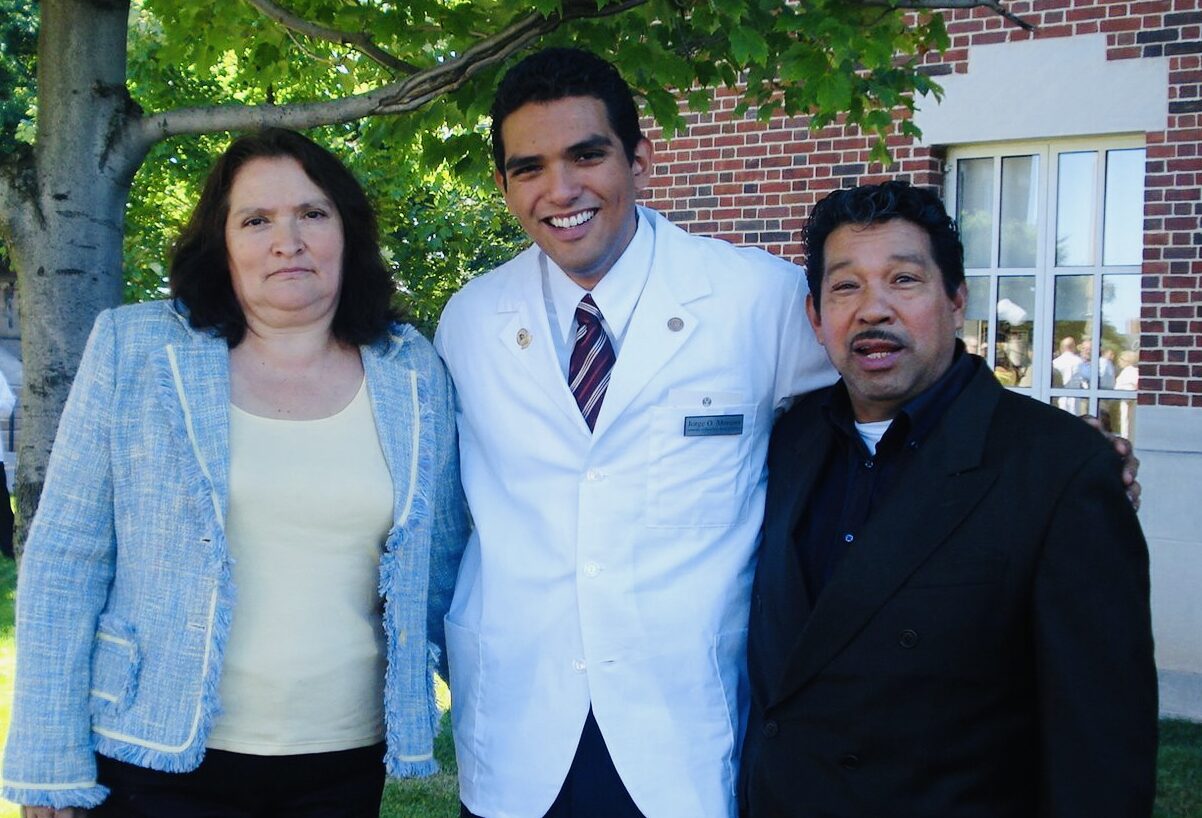
Toward the end of college, Jorge faced another challenge: the Medical College Admission Test (MCAT).
Not a pro at standardized testing, Jorge took the exam twice for a chance at a higher score.
“I want to emphasize that a test score does not define who anyone is,” Jorge said. “The MCAT is important, but it is only one element medical schools review when applying.”
To continue prepping for medical school, Jorge spent a year after college teaching health topics in schools in underserved communities in Harlem and Washington Heights in New York.
During that time, he interviewed for medical schools and accepted an offer to attend the University of Rochester School of Medicine and Dentistry in fall 2008.
A New Chapter: Medical School
Jorge chose where to get his medical education carefully. He wanted to ensure that he could thrive while navigating his rigorous studies.
“The one piece of advice that I can give to future medical students is when you apply to medical schools, look at the prior classes – take note of how happy and stressed they are,” Jorge said. “The University of Rochester was very positive in the sense that all the students helped each other, and the teachers were there to help you, too.”
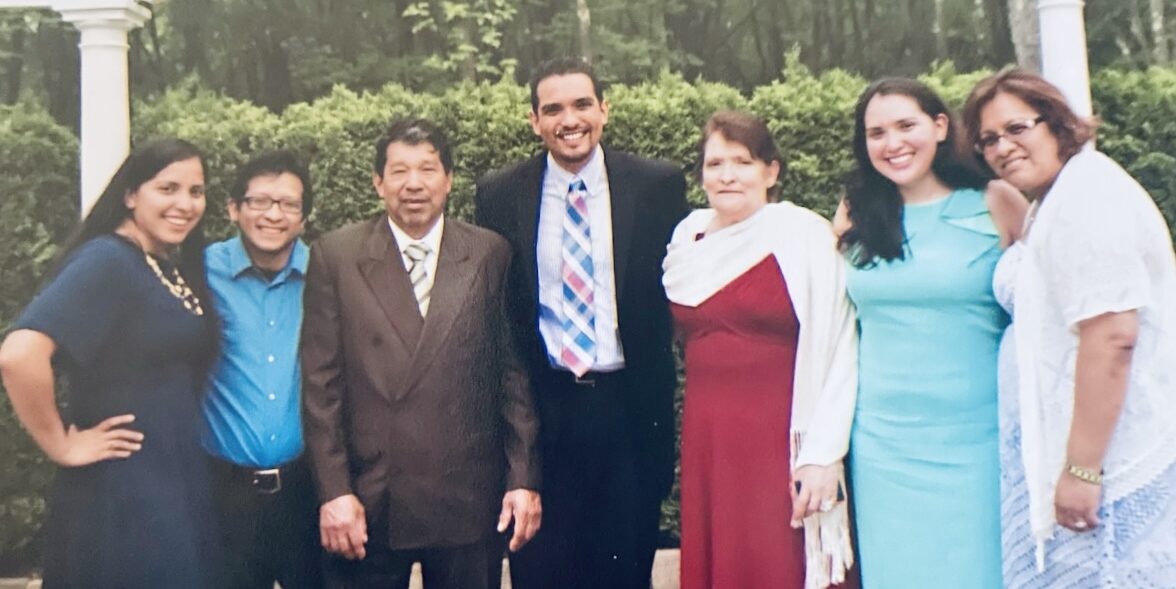
Jorge did well in medical school, particularly in his clinical rotations, and graduated in 2011.
He applied for residency programs with the support of his mentors, ultimately completing his residency at Yale School of Medicine’s Primary Care Residency Program in 2014.
He went on to work in internal medicine at a community practice for four years before he felt a calling to return to Yale School of Medicine as faculty to teach and train the next generation of healthcare providers.
“Coming to Yale as a faculty member was a huge accomplishment,” Jorge said. “Coming into the country as an immigrant and becoming a faculty member at Yale School of Medicine – it’s just doesn’t happen often.”
While he was at Yale, Jorge became a diplomate of the American Board of Obesity Medicine in 2019 and established an obesity medicine clinic shortly thereafter.
A Liaison for the Latino Community
Jorge’s prestigious training and dedication to his studies came in handy in 2020.
By that time, COVID-19 had swept the nation and Latinos were becoming infected with SARS-CoV-2 at disproportionate rates.
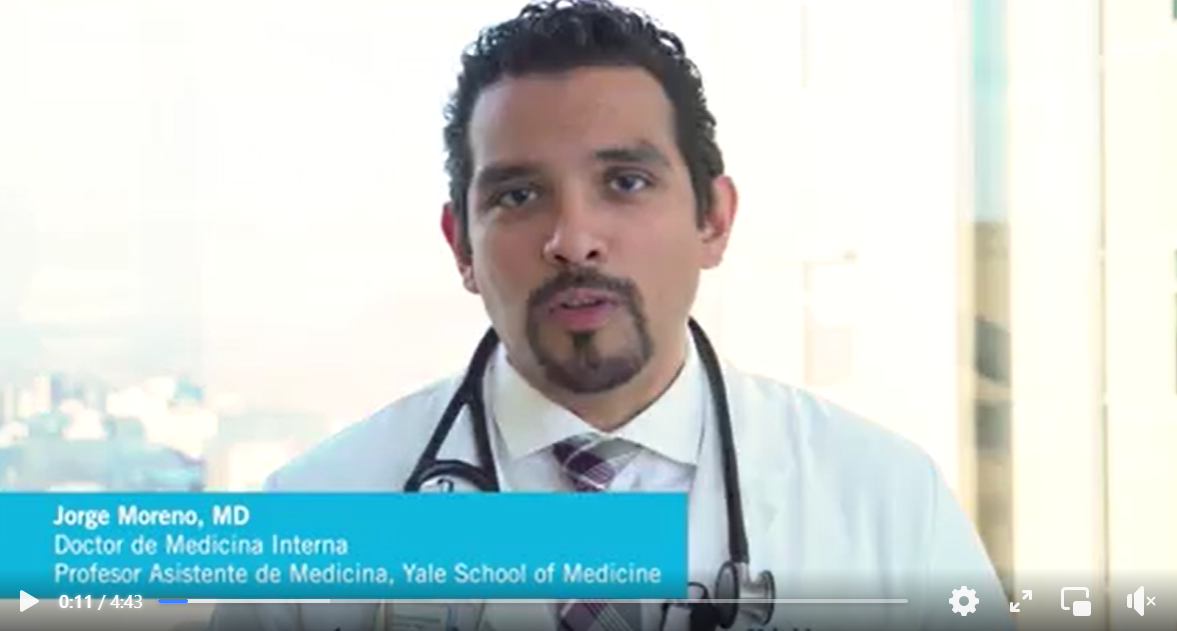
From his own experience with language barriers, Jorge knew the Latino community could benefit from a credible source who could provide COVID-19 information in Spanish.
He felt compelled to become that source.
“I was fortunate to be one of the first people to get vaccinated in Connecticut,” Jorge explained. “So, I decided to do a Twitter video about my experience getting the vaccine. I did the video in Spanish because there was a lack of information about the COVID-19 vaccine in Spanish at the time.
“Our local NPR station picked up the story and asked me about other issues, like vaccine hesitancy in the Latino community. Little by little I noticed that there was an even bigger need for culturally competent COVID-19 information.”
From there, Jorge blossomed in his role as a liaison for the Latino community.
He began collaborating with the Connecticut State Department of Health and Yale New Haven Health to do more Q&As about the COVID-19 vaccine in English and Spanish.
He also contributed bilingual information to Connecticut Public Radio, NBC News, The Washington Post, and ABC News.
“I was happy to be able to do this outreach for the Latino community because it was much needed,” Jorge said.
Infection Control Protocols: An Everyday Necessity
While the COVID-19 pandemic brought infection control to the forefront of healthcare workers’ concerns, Jorge has always modeled important infection control actions.
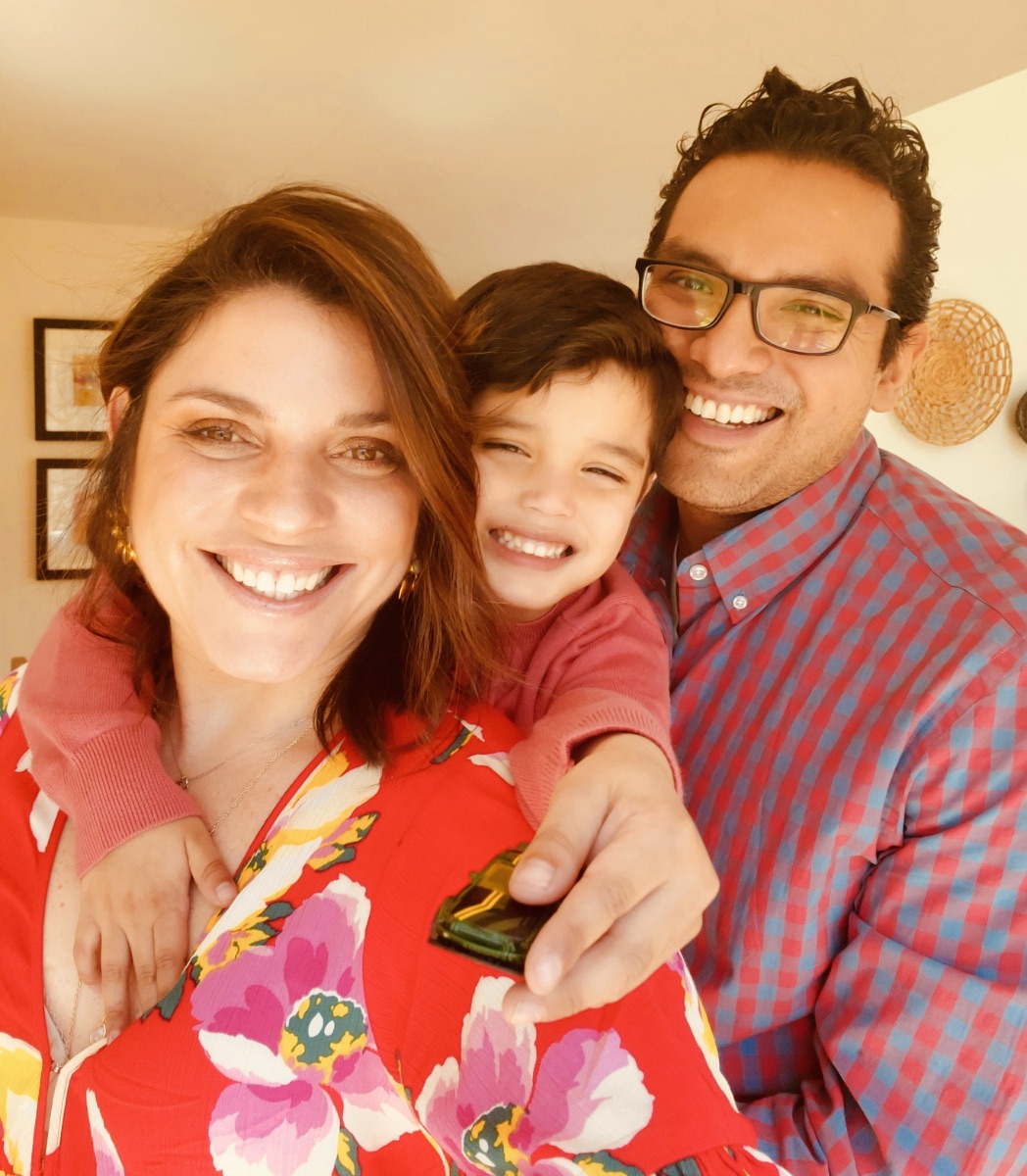
He emphasized to other healthcare workers not to overlook basic protocols, such as properly cleaning your hands.
“I cannot emphasize enough that hand washing is one of the most important infection control practices,” Jorge said.
Throughout clinic encounters, Jorge also continues to wear a mask because he regularly sees patients who are potentially contagious with infections that can spread by being breathed in.
Wearing gloves, when appropriate, is also important to prevent the spread of infectious diseases.
“If there’s any breaks in the skin, bodily fluids, scrapes, or rashes, or if you’re doing any procedures, you should wear gloves,” Jorge said.
Infection control, especially during a pandemic, can be challenging.
For Jorge, one the biggest challenges during the height of the COVID-19 pandemic was staying up to date on emerging data and information.
He continues to face this challenge as patients present to the clinic with other infectious diseases, including influenza, but he knows where he can find reliable information.
“I personally go back to the CDC and FDA website to get the latest recommendations on minimizing the spread of disease,” Jorge said.
Giving [Infection Control] His All
Unfortunately, Jorge lost one of his biggest supporters – his father – to cancer during the COVID-19 pandemic, adding to the challenges of those stressful times.
Despite this loss, Jorge still finds strength and motivation to reach for even higher goals.
That is why Jorge participated in the National Hispanic Medical Association (NHMA) Leadership Fellowship.
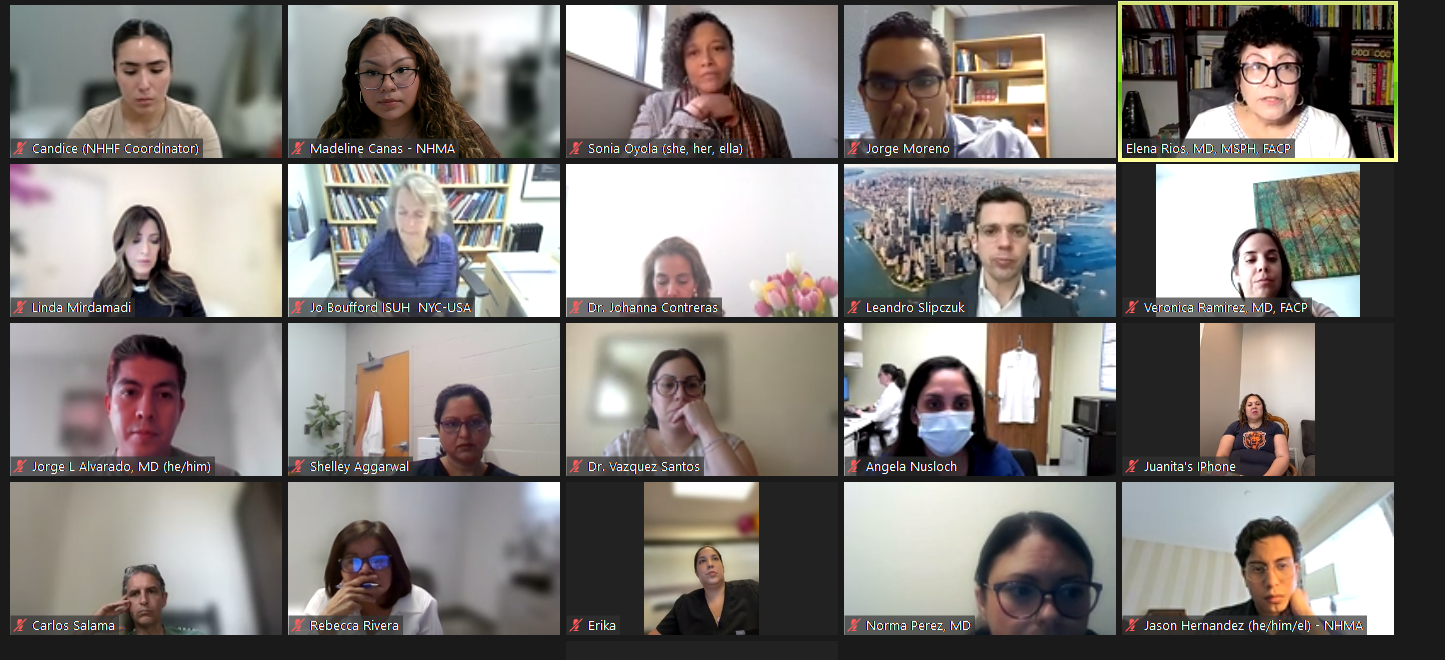
The NHMA Leadership Fellowship, launched in 1999, has supported the careers of over 100 Latino physicians. The goal is to increase the number of skilled Hispanic physicians who can enter the pool of applicants for decision-making and executive positions in the state and federal government and in the private sector.
NHMA fellows join in-person and virtual events focusing on public health, media, advocacy, infection control, and other topics to address to address leadership skills and health disparities in the Latino community.
“The ultimate outcome is to improve the quality of health of all Americans,” according to NHMA.
His father’s advice, “échale ganas,” still echoes in Jorge’s mind.
“That is the philosophy that he lived by, that’s the philosophy I use, and that’s what I would encourage others to do, too,” Jorge said.
What Can You Do to Promote Infection Control in Your Healthcare Setting?
Like Jorge, you can help keep yourself, your colleagues, and your patients safe from infectious disease threats by building on your infection control knowledge!
To show your dedication, sign this pledge to complete an infection control training or activity through CDC’s Project Firstline!
You can also share infection control training opportunities with healthcare colleagues via LinkedIn with our Project Firstline social media toolkit.
You can access more information about infection prevention and control in healthcare by visiting resources from CDC Project Firstline.
Salud America! at UT Health San Antonio is working with the National Hispanic Medical Association to bring Project Firstline infection control educational content to healthcare workers, so they are equipped with the knowledge they need to protect themselves, their facilities, and their patients (Latinos and all communities) from infectious disease threats in healthcare settings.
Check out some of the articles from this partnership:
- What is Project Firstline?
- What is the Goal of Infection Prevention and Control in Healthcare Settings?
- What’s a Virus?
- What is Ventilation and Why Does It Matter?
- Contact Time: What is It and How Does it Impact Infection Control?
- The Surprising Difference Between Cleaning and Disinfection
- What’s a Respiratory Droplet and Why Does It Matter?
- We Need to Talk about Hand Hygiene Again
- Why are Gowns, Gloves, and Eye Protection Recommended for COVID-19?
Check out some of the Latino healthcare workers who are heroes for infection control:
- Anna Valdez: Tackling Infection Control with Education from Classroom to Clinic
- Wanda Montalvo: Preventing Infections in Community Health Centers, Latino Communities
- Ricardo Correa: Endocrinologist and Infection Control Leader for the Latino Community
Learn More about Project Firstline!
Editor’s Note: This article is part of a collaboration between Salud America!, the National Hispanic Medical Association, and the CDC’s Project Firstline. To find resources training materials, and other tools to bolster knowledge and practice of infection control, visit Project Firstline and view Salud America!’s infection control content.
Explore More:
Infection ControlBy The Numbers
142
Percent
Expected rise in Latino cancer cases in coming years
This success story was produced by Salud America! with support from the Robert Wood Johnson Foundation.
The stories are intended for educational and informative purposes. References to specific policymakers, individuals, schools, policies, or companies have been included solely to advance these purposes and do not constitute an endorsement, sponsorship, or recommendation. Stories are based on and told by real community members and are the opinions and views of the individuals whose stories are told. Organization and activities described were not supported by Salud America! or the Robert Wood Johnson Foundation and do not necessarily represent the views of Salud America! or the Robert Wood Johnson Foundation.

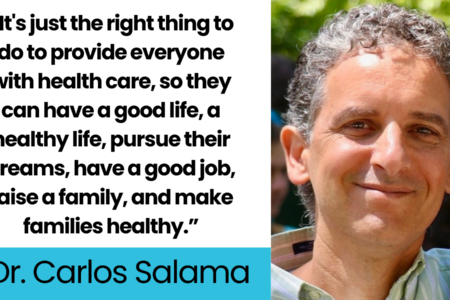

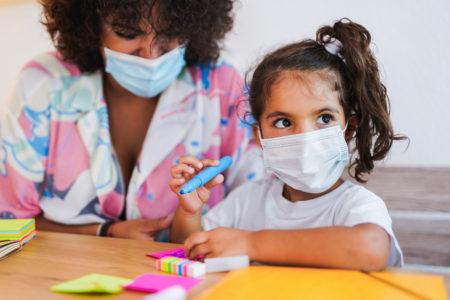
[…] The pandemic is another chapter in the bitter story of American racism and inequality. Black and Latinx people are being infected and are dying at much higher rates than white Americans. Many people of […]
[…] coronavirus has killed over 61,000 Latinos in America according to the CDC, accounting for over 18.2% of the total COVID deaths in the […]
[…] Whereas Hispanics make up 11% of D.C.’s inhabitants, they signify 19% of the COVID cases, and 14% of the deaths. Equally, 46% of D.C.’s residents are Black, they usually make up an alarming 75% […]
[…] and historical mistreatment. According to the U.S. Centers for Disease Control and Prevention, Latino and Black American communities are three times more likely to become infected with […]
[…] Covid pandemic has hit the Latino community particularly hard, and data from the nonprofit health equity advocacy group Salud America! shows Latinos lead in the 0-24 age […]
[…] the pandemic, Latinos took major blows, both in terms of COVID-19 cases and also from the economic recession under former President Donald Trump. Nearly half (49%) of […]
[…] the positive trend, the harm may have already been done. The pandemic has disproportionately impacted Latino communities. Reuters reported that election-related or political disinformation that […]
[…] pesar de la tendencia positiva, es posible que el daño ya esté hecho. La pandemia ha impactado desproporcionadamente Comunidades latinas. Reuters informó que la desinformación política o relacionada con las […]
[…] residentes blancos muestran una tasa mucho más baja con 10 muertes por cada 100,000 habitantes(8 9) . Los afroestadounidenses por su parte, denuncian subsistemas de salud que les segregan […]
[…] https://salud-america.org/coronavirus-case-rates-and-death-rates-for-latinos-in-the-united-states/ […]
[…] https://salud-america.org/coronavirus-case-rates-and-death-rates-for-latinos-in-the-united-states/ […]
[…] communities have the second-highest number of COVID-19 cases in the U.S. They’re also more likely to become hospitalized and die from the disease than other […]
[…] total, around 160,000 Latinos were killed by COVID-19. This accounts for 16% of the 1 million deaths in the country. The […]